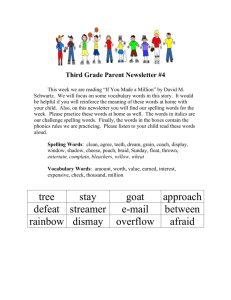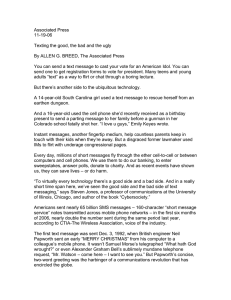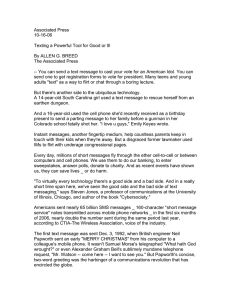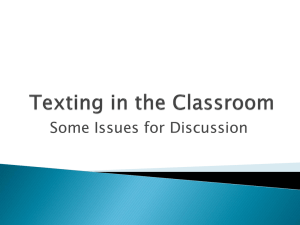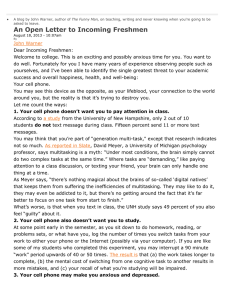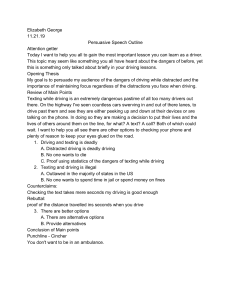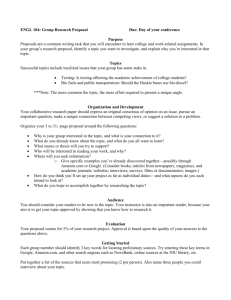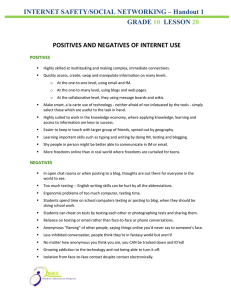ACT Reading 2
advertisement
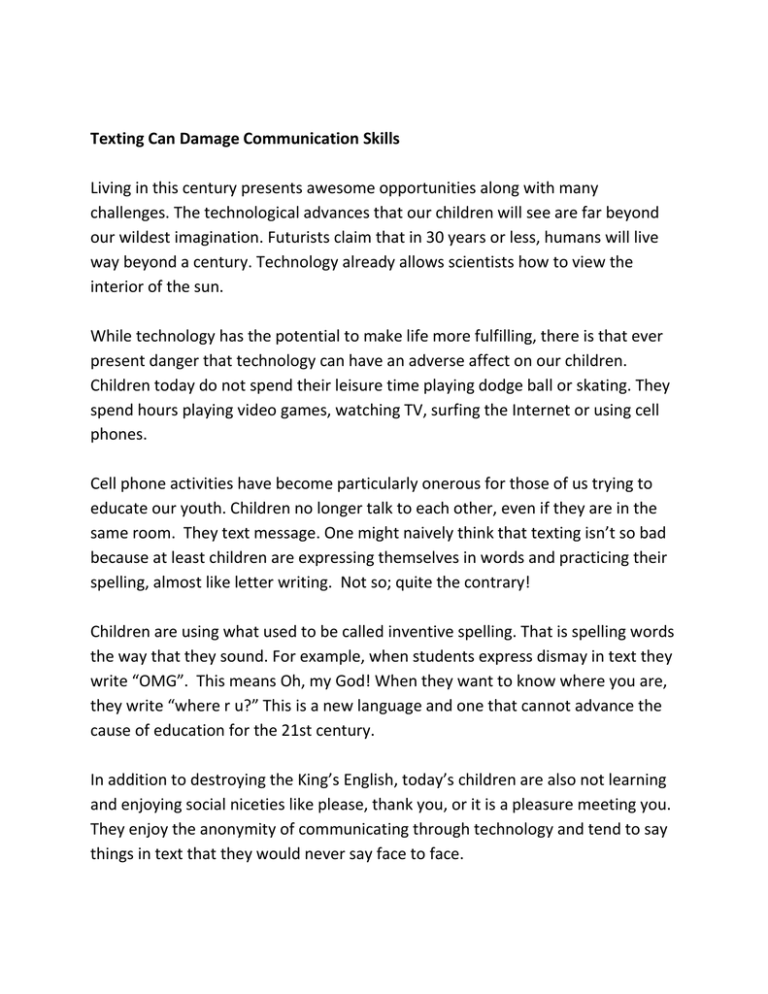
Texting Can Damage Communication Skills Living in this century presents awesome opportunities along with many challenges. The technological advances that our children will see are far beyond our wildest imagination. Futurists claim that in 30 years or less, humans will live way beyond a century. Technology already allows scientists how to view the interior of the sun. While technology has the potential to make life more fulfilling, there is that ever present danger that technology can have an adverse affect on our children. Children today do not spend their leisure time playing dodge ball or skating. They spend hours playing video games, watching TV, surfing the Internet or using cell phones. Cell phone activities have become particularly onerous for those of us trying to educate our youth. Children no longer talk to each other, even if they are in the same room. They text message. One might naively think that texting isn’t so bad because at least children are expressing themselves in words and practicing their spelling, almost like letter writing. Not so; quite the contrary! Children are using what used to be called inventive spelling. That is spelling words the way that they sound. For example, when students express dismay in text they write “OMG”. This means Oh, my God! When they want to know where you are, they write “where r u?” This is a new language and one that cannot advance the cause of education for the 21st century. In addition to destroying the King’s English, today’s children are also not learning and enjoying social niceties like please, thank you, or it is a pleasure meeting you. They enjoy the anonymity of communicating through technology and tend to say things in text that they would never say face to face. This phenomenon is not unique to our children. Adults are almost as guilty. They model this behavior by communicating with their children through text messaging. Parents fail to have those crucial conversations with their children face to face; instead they think that their guidance is better received through the medium that children like to use. Additionally, parents mistakenly believe that they are in better contact with their children when the children respond to their messages. For example, “where r u?” And the child responds, “I am in school being tutored.” Yeah, right! Try though we might to police the inappropriate use of cell phones in schools, it is almost impossible. I have seen student’s texting in their pockets. Our challenge in school, as well as at home, is not to fight technology because it is here to stay; but school personnel will play a critical role in channeling technology in the direction of quality teaching and learning. Parents must insist that children understand the appropriate use of technology and the significant impact that poor judgment can cause.
